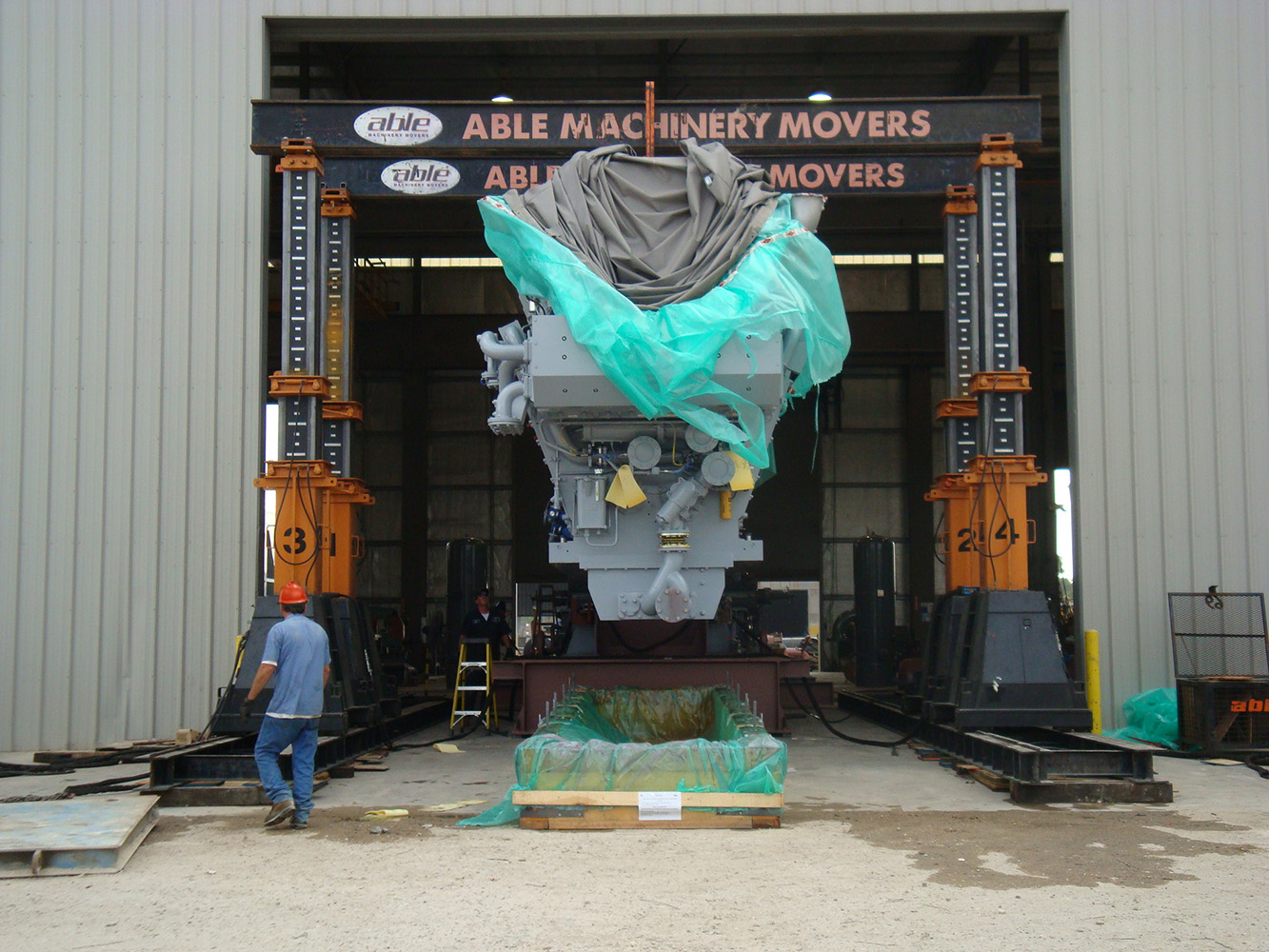Steps to relocating a factory or plant
Do you have a plant relocation on the horizon? Relocating a factory or plant is a huge project that will require a lot of coordination. Many plant operators have never faced the colossal task and are not fully prepared to handle it on top of their regular day-to-day duties.
That’s where experts like Able Machinery Movers can help. Every minute of downtime costs money, so not knowing the most efficient methods can make a factory or plant relocation more expensive than it needs to be.
Decades of experience has told us that no two plant relocations are alike, but there are a few crucial considerations and steps that will make any relocation go more smoothly. This guide will help explain:
What a plant relocation involves.
What to consider during the relocation process.
The essential steps to relocating a factory or plant.
WHAT IS CONSIDERED PLANT OR FACTORY RELOCATION?
Moving a few pieces of large machinery around isn’t an easy job, neither is a full-fledge plant relocation. A factory or plant relocation is when the entire facility is changing locations. A factory or plant relocation involves dismantling all of the machinery, packing it up, transporting it and then reassembling it at the new site.
THE PRIMARY REASONS FOR RELOCATING A PLANT OR FACTORY
Every business has it’s own reason for making a relocation. Some reasons that commonly motivate a plant relocation include:
- Outgrown current space
- Lower operation costs
- Maintain or increase profitabilityMoving the business to another city or state
- Demand is higher in another location
- Better pool of employees in another location
- Current location is on the decline.
- Need a more modern facility.
- Consolidating facilities
- Get closer to suppliers or resources.
THE PRIMARY REASONS FOR RELOCATING A PLANT OR FACTORY
How soon the plant or factory needs to be relocated.
The more time you have the better. You want ample time to come up with a facility relocation project plan and put a team in place. Being short on time will increase the cost and potential for mistakes, not to mention stress.
How much help you need from outside the company.
What contractors will need to be hired to make the move possible? You’ll also need to identify where in the relocation process you need help. A rule of thumb is that the less time you have the more outside help you’ll need.
Where layout drawings will come from.
You’ll need detail layout drawings of both your current facility and the new facility. The layout drawings need to include equipment size, utility locations, aisles, columns and walls among other things. No matter who creates the layout drawings, the relocation project manager should visually and manually verify they are accurate.
How the move will affect your supply chain.
In most cases, this is one of the first things plant managers think about. You may even be making a plant relocation to enhance your supply chain and production. It’s a good idea to account for a certain level of downtime while looking for every possible way to minimize disruption beforehand and improve the supply chain afterward.
How to ensure the safety of employees, contractors and the equipment.
A risk assessment must be done before the relocation can happen. You need to know the potential for injury or damage so that you can plan accordingly. Hiring professional machinery movers to orchestrate the relocation process is almost always the best option to ensure the plant relocation goes as safely and smoothly as possible.
STEPS TO RELOCATING A PLANT OR FACTORY
Although every factory or plant relocation is unique, there are a number of steps that should be taken any time you’re relocating:
- Come up with a facility relocation project plan.
- Assemble your relocation team.
- Do a thorough risk assessment.
- Line up contractors and get services scheduled.
- Get layout drawings prepared and get a copy to everyone involved.
- Take inventory of all equipment and machinery.
- Think about how the supply chain will be affected and plan for changes.
- Outline what each person is responsible for and the tasks of their job.
PLANT RELOCATION SERVICES FROM THE PROFESSIONALS
It’s easy to second-guess whether you’re making the right decisions and preparing properly for a factory or plant relocation. We know just how complex the process can be because Able Machinery Movers has been providing factory and plant relocation services for decades.
Get a Facility Relocation Project Plan From the Experts
It all starts with a well thought-out plan. Creating a factory relocation project plan is the first step in relocating any factory or plant, and it’s arguably the most important step.
Able Machinery Movers can work with your on-site team to create a facility relocation project plan that gets the move done efficiently, safely and cost effectively.
Contact Able Machinery Movers today to discuss your upcoming factory or plant relocation.
